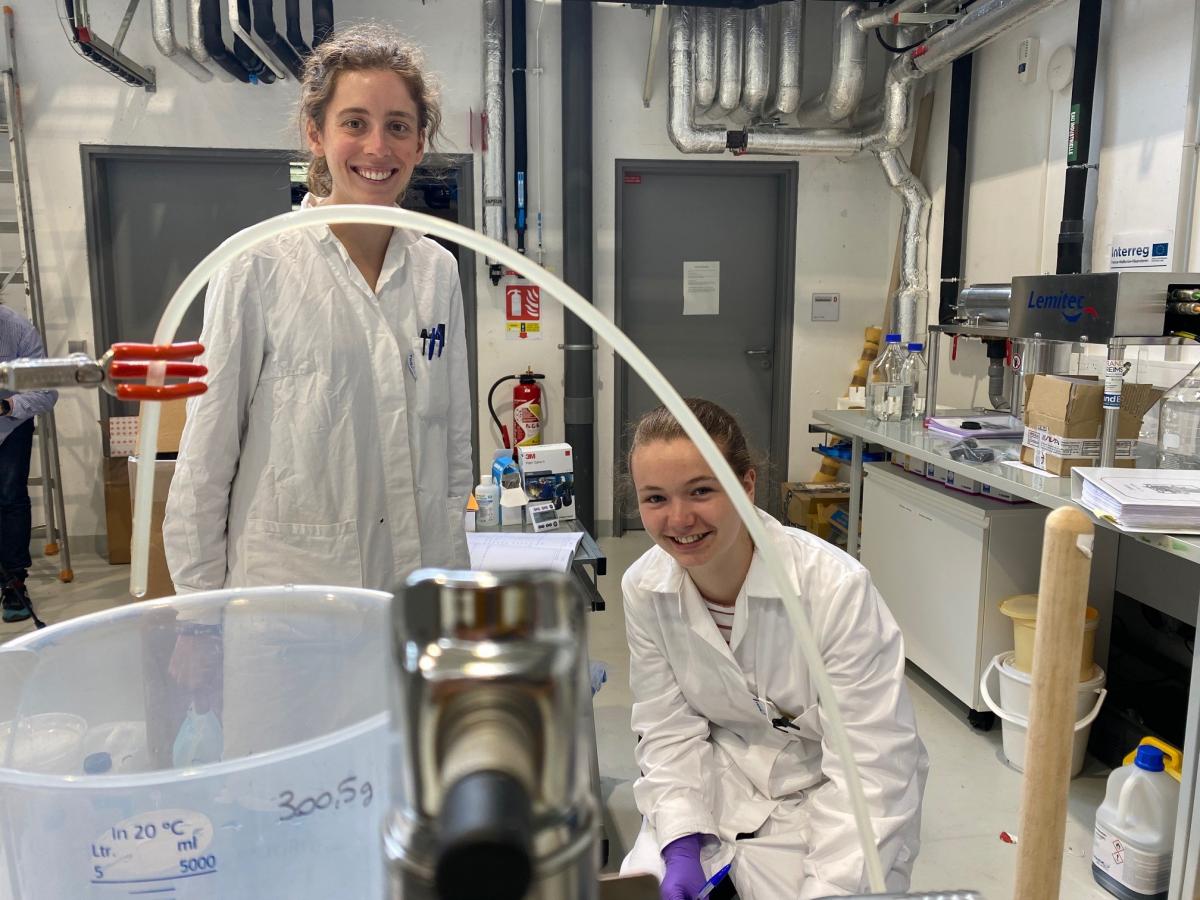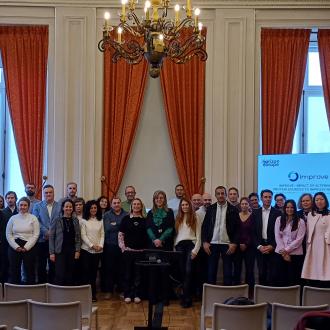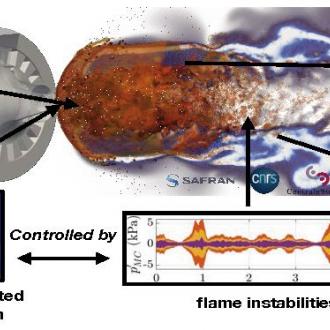Sanofi, Capgemini, Ypso-Facto, GPC Bio, CEA, and CentraleSupélec announce the launch of the project CALIPSO (Capteurs en Ligne de Procédés et Solutions Innovantes en Bioproduction, or Online Process Sensors and Innovative Bioproduction Solutions).
This project, with a total budget of nearly €17.5M, is publicly backed to the tune of €M 8.059 as part of the PSPC n°9 call to tender, operated on behalf of the State by Bpifrance through the Future Investment Program (PIA). The objective of the CALIPSO project is to develop a new generation of tools that will revolutionize R&D methodology and the management of industrial bioproduction processes, thus enabling productivity gains up to a factor 10.
Biomedicines constitute a range of innovative medicines, which have the distinctive feature of relying on extractions from living biological organisms for the production of their active ingredients. Biomedicines currently represent 40% of medicines under development, thus giving them a crucial role in the therapeutic arsenal available to healthcare professionals. These innovative therapies pave the way for the emergence of new generations of vaccines and treatments for diseases which are currently incurable with medicines based on synthetic chemical active ingredients.
While France is a latecomer regarding the production of biomedicines and is dependent on imports for medical equipment, active ingredients and medicines, actors in the bioproduction sector are mobilizing to boost French production capacities to adapt to market demands. This collective effort is necessary to enhance productivity, accelerate access to new medicines at an acceptable cost as well as to ensure France’s competitiveness and its health independence. It is a strategic issue that has been identified by the Comité Stratégique de Filière-Industrie et Technologies de Santé (Strategic Committee for the Healthcare Technology and Industrial Sector).
A new paradigm for bioproduction processes
The objective of the CALIPSO project is to offer a new approach to manage bioproduction processes, by developing cutting-edge technologies along with IT solutions that enable their exploitation. The use of digital tools and solutions on bioproduction development lines will increase productivity whilst ensuring the production of very high-quality batches.
The project will lay down the groundwork towards more flexible and automated production solutions, a key step to accompany the transformation and personalization of medical care.
The CALIPSO project is articulated around three major ambitions:
- The development and transfer of technologies to the pre-industrialization of a new generation of micro-sensors which will enable to solve problems for which there are currently no efficient solutions at the global level.
- The implementation of a new approach to model bioproduction processes, by using pre-existing data alongside data generated by new sensors. Ultimately, the sector aims to conceive databases designed in a way that integrates and stocks all data. This data will enable the creation of identical digital representations (“digital twins”) and processes which will in turn facilitate prediction tools to optimize certain steps of the purification process. In addition, real-time regulation systems could also be used throughout the various steps of cell cultivation.
- The simultaneous exploitation of all this data (thousands per batch), piloted by artificial intelligence, will accelerate molecule selection and their large-scale production in record time.

An innovative and unique project dedicated to competitive biotherapies
The consortium aims, via CALIPSO, to have a major positive impact on public health: on the one hand, the development of French bioproduction should lessen the strain caused by the cost of certain medicines on the French healthcare system by proposing alternatives that are accessible to the biggest number. On the other hand, the project will allow significant timesaving when it comes to bioproducing new cures and vaccines.
This acceleration will therefore offer new solutions and better care for certain pathologies such as cancer or auto-immune diseases. Furthermore, the different technological innovations developed within the CALIPSO framework will enable the conception of completely automated miniature systems for more personalized care. These new tools will increase the production capacity of specific treatments that are adapted to specific sub-segments of the population or even tailor-made for individual patients, by making production more reactive, more agile, faster and cheaper.
Dr. Jacques Volckmann, President of the CSF-ITS Bioproduction steering committee, VP R&D Sanofi France declared: “This novel project unites the best public and private-sector experts in France to build a broad and innovative project in the development of French bioproduction capacity, a key issue for the sector. Sanofi, a leader in the healthcare sector and in biomedical research, will drive the project alongside all other parties involved.”
Mr. Jean-François Toussaint, Global Head of Research & Development, Sanofi Pasteur declared: "The CALIPSO project represents a tremendous opportunity to accelerate the development of biomanufacturing processes by capturing and using more data. This will allow us to identify and control critical process parameters and to transfer them to industrial scale more rapidly. Patients will be the primary beneficiaries of this project as they will have faster access to therapeutic innovations from our R&D portfolio, which are more than 60% biologics and vaccines.”
David Chovaux, VP | Deputy Managing Director of Capgemini Engineering declared: “As integrators of technological and digital solutions, we have been committed for many years alongside major healthcare actors to contribute to this smart industry consortium and to empower the next generation of healthcare treatments. Evaluating technologies likely to improve the efficiency of bioproduction thanks to smart sensors, real-time data and artificial intelligence is a crucial issue for the future.”
Mrs. Agnès Corbin, Business Development Manager, Ypso-Facto, declared: “Ypso-Facto is proud of its contribution to tackling the challenges relating to bioproduction in France, especially those pertaining to productivity and competitiveness. Alongside Sanofi and other renowned partners, our expertise in modelling and our predictive capabilities will serve as a lever to develop innovative therapies in future.”
Mr. Zsolt Popse, CEO GPC Bio, declared: “The team at GPC Bio is very happy to actively participate in the development of this new process and of bioproduction sensors, linking artificial intelligence and hi-tech. Along with Sanofi and our partners, our knowledge and expertise as bioproduction equipment manufacturers will actively contribute to the launch of a new generation of industrial equipment.”
Mrs. Nadège Nief, Deputy Head Micro-Technologies for Biology and Healthcare Division at CEA declared: “The Calipso project is an extraordinary opportunity to develop sensors and innovative systems to optimize bioproduction yiets. The CEA is proud to be a part of it and will bring its know-how in conceiving, developing, and integrating cutting-edge sensors to better monitor in and at-line USPs (Upstream Processes) and DSPs (Downstream Processes) phases. Regarding industrial transfers, we aim to contribute to the creation or the strengthening of a French or European sensor manufacturer and to supplement GPC bio’s offer, which will integrate these ground-breaking technologies in its bioproduction equipment.”
Prof. Patrick Perré, Head of the Biotechnology Chair, Engineering of Processes and Materials Laboratory, CentraleSupélec declared: “Relying on CentraleSupélec’s core skills, the Biotechnology chair has structured its project around the concepts of a “digital twin” and of instrumentation. We are delighted to place our know-how and that of the Metz campus, in collaboration with a high-level consortium, at the service of an ambitious project in a key sector for France, from both an economic and a strategic standpoint.”
Clémentine Lamarre, Healthcare Manager at Bpifrance’s Innovation Directorate, commented: “We are happy to accompany Sanofi and its partners in the development of new tools to analyse and monitor bioproduction. This project deals with the challenges of “Biotherapies and bioproduction of innovative therapies”, announced by the government in January 2021, amongst other acceleration strategies identified within the framework of PIA4. It should enable the optimisation of quality, costs, and timeframes for biomedicine production, which constitute a decisive opportunity for patients and currently represents over 50% of ongoing clinical trials.”
The socioeconomic impact of the CALIPSO project on the bioproduction stream
The CALIPSO project will have a broad socioeconomic impact on the entire bioproduction stream. In the short-term, it will enable the creation of 100 jobs across various fields. Furthermore, it will have a positive impact on the entire value chain with the creation of R&D jobs in both big corporations and SMEs, with specific know-how relating to the development of sensors and artificial intelligence at their core.
In addition, CALIPSO will yield a cumulative turnover estimated at €250M by 2035, for its tools and the solutions it would have developed. It will play an important role in maintaining investments in the French pharmaceutical sector and will place the country at the heart of their bioproduction strategies.
About CALIPSO
CALIPSO is a research & development (R&D) PSPC (Structuring Project for Competitiveness) for French medical research which will be conducted over the next 5 years. Operated by Bpifrance within the framework of the Programme d’Investissements d’Avenir (PIA, or Future Investments Programmes), the objective of PSPCs is to structure various industrial sectors and help new ones emerge, thanks to the collaboration of private-sector and academic partners around ambitious projects.
Financed by public and private funds and coordinated by Sanofi, the CALIPSO project unites technological expertise, industrial actors and leading participants:
- Sanofi will bring its widespread expertise in biopharmaceutical production (vaccinations or biotherapies)
- Capgemini Engineering, relying on the engineering and R&D capabilities of the Capgemini Group, will bring its expertise in transforming data into knowledge to stimulate and optimise complex processes thanks to artificial intelligence.
- Ypso-Facto will bring its expertise in developing tools to enable the visualisation of data in a structured, interactive and flexible manner, as well as in predictive software for the development and the optimisation of bioreactors (USP) and purifications (DSP).
- Global Process Concept will bring its technical expertise and tools in matters of modelling, retroactive monitoring and prediction.
- The CEA brings its technological expertise by developing a new generation of sensors, enabling the implementation of monitoring and decision-making systems.
- CentraleSupélec will bring its academic expertise in modelling and bioprocesses simulation




